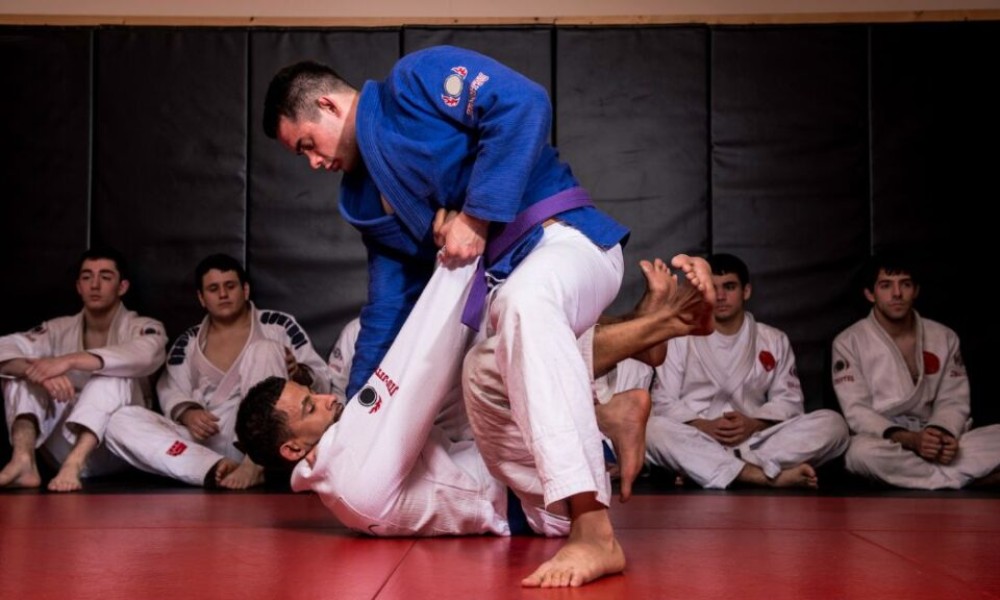How To Be A Good Learner in Jiu Jitsu: 10 Tips
Whether you've just started Jiu Jitsu training or been training for decades, and whether you have an amazing or a lousy coach, you will have some understanding of the importance of a decent coach if you really want to improve at a reasonable pace.
But your coach is not responsible for your improvement, you are.
After almost 30 years training martial arts with many different instructors, in many parts of the world, I can safely say that no coach is waiting for a student just like you to turn up to their dojo so they can adopt you as their protégé and give you their full attention, helping you to achieve all your athletic goals. You are not Danial san.
Most people do not continue to train past their first year and many don't come back after their first class.
Your coach has seen so many people come and go that it's a wonder they maintain any level of enthusiasm for coaching at all and it's not at all surprising that most of the enthusiasm they have is spent on the few students who really have stuck around year after year.
If you do have a really keen and present coach who still loves coaching then that's fantastic and you really should be thankful, but here are 10 ways you can make the most of that coach and help them to help you improve.
1. Get To Class Early
I realise this isn't always possible depending on your situation but IF you can, then do. Not only does it ensure you don't miss anything but any extra training you can fit in before class, even if it's only a few minutes, not only helps you improve but will mean you are ready to fully focus and utilise the full hour of class time.
Let's say you train 3 times a week and you always get to the mats 15 mins before class starts. You do a few specific exercises which warm up your body the way you need, you work on a couple of your worst solo drills for a few minutes, then as others drift in you ask a teammate a question and have a little play around with something for a few minutes.
Then class starts. You're already kind of warm so you can really go for it in the warm up and improve your strength and conditioning. Your worst solo drills are becoming your favourites. That thing you and a teammate were playing with comes up in class and now you feel you have a little prior experience, however small.
These things all compound. After a year of training, compared to your friend who always turns up 5 mins late, tying their belt as they stumble onto the mat apologising to your coach, catching only the last exercise of the warm up and feeling unfocused for the first section of the class, you've racked up 52 extra hours of training.
2. Ask Questions
I know that most people don't feel confident enough to ask questions in front of a whole class of other students but there are many other times you can ask your coach or other higher belts in your gym, questions. And 99% of the time they will be very happy to answer you.
If you look at any coloured belt in your gym you can assume they love Jiu Jitsu and will be happy to try to answer any questions you have. What weight you give their answer may depend on their belt colour somewhat, but regardless of belt colour some people are able to articulate themselves better than others or may have experience specific to your question.
You're also doing them a favour by asking them questions because having to answer questions about Jiu Jitsu forces you to think more and formulate a "correct" response. Sometimes I've been asked a question and I've even surprised myself at my insightful response, other times I've been stumped and had to give it real thought before I could answer and sometimes I haven't been able to answer there and then and only after heavy pondering and possibly consultation with others, have I been able to go back to that student with a reply I'm happy with. In all instances I learnt something from the exchange and was glad the student had asked.
If you don't feel able to ask questions in front of the whole class then wait until your coach gets near you when they're walking around during class, or catch them after class or at an open mat.
Don't just ask an inane question for the sake of asking a question, like who would win a lion or a bear? Ask about a problem you're having when rolling, or consult that list of questions you've compiled when they occur to you and there's no one around to ask 😉
3. Make Notes
At first your notes will be terrible. You won't yet have a grasp on the terminology and you won't be noting the right things. It doesn't matter.
Be a white belt at note taking. Your note taking will get better as your Jiu Jitsu gets better.
Don't try to take notes while your coach is talking or demoing, do it after class when you won't miss anything while you're writing/typing.
Don't wait too long after a class to make your notes, your memory is worse than you think it is.
Don't try to note every single little thing, stick to 3-4 main points and any little random things which come to mind.
For more tips on making notes, see this post I wrote.
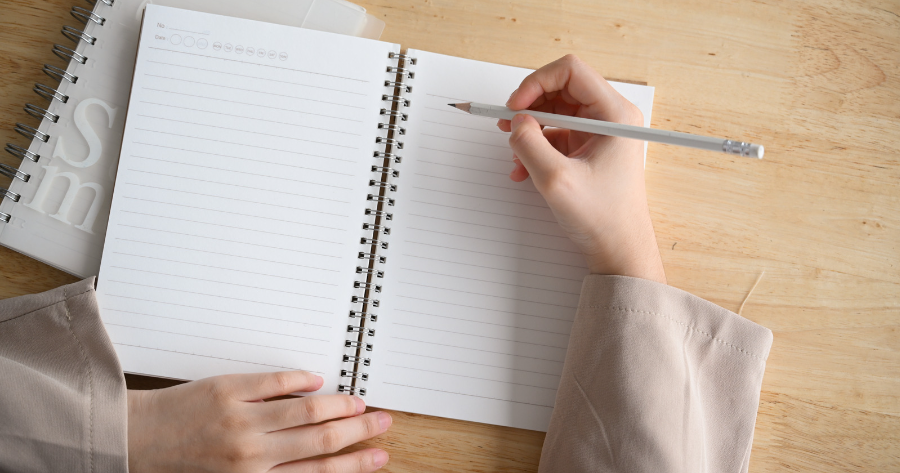
4. Focus
I know some people have a real problem maintaining focus and concentration but if you make a conscious effort to try then you will get better at it.
If you're not really listening to your coach when they talk and demo, then have to ask your partner what you're meant to be doing once you're training, your partner then has to waste valuable training time explaining to you what you should already know had you been paying attention.
If your partner was also not paying attention then you now have to sit like two dumb f**ks watching other pairs to try to figure out what you should be doing. When all along you could be training had you both just been focused on your coach while they were talking instead of thinking about what you're going to have for dinner, or trying to catch the eye of your favourite training partner before they pair up with someone else.
Aside from detracting from your own training or annoying your training partner, it's also pretty disrespectful to your coach. Now I'm in no way advocating any kind of automatic hierarchical respect in the traditional martial arts sense, I'm only talking about the general respect we should give anyone when they're explaining something to us, especially which we've specifically asked for by being there and want to learn.
Sit up (or stand), look at your coach, try to take in what they're saying and don't be afraid to ask for further explanation or another demo.
Also, be ready to move around your coach and their uke when they are demoing because if you stay seated in one spot you are likely to miss something.

5. Watch High Level Matches & Breakdowns
If you watch the best grapplers in the world at the top competitions in the world, you will absorb and internalise how they move and that will help your brain tell your body how to move better when you're training and competing yourself.
You'll also be surprised at how many of the basic fundamental moves you learn in your first year, are moves still being used by black belts in the biggest competitions. Hopefully this will highlight how important these fundamentals are and give you good reason to spend time on them.
There are some excellent breakdown channels now, which can be very helpful in understanding some of the unseen nuances of a match or roll. I recommend the YouTube channel Less Impressed More Involved by Jake Luigi and Jordan Preisinger of Jordan Teaches Jiu Jitsu also does some great breakdowns of his rolls.
I think you'll start to see many more breakdown channels in the future, I know my friend and B-Team brown belt Tyler Casselman is planning on doing some, so keep an eye on his channel too.
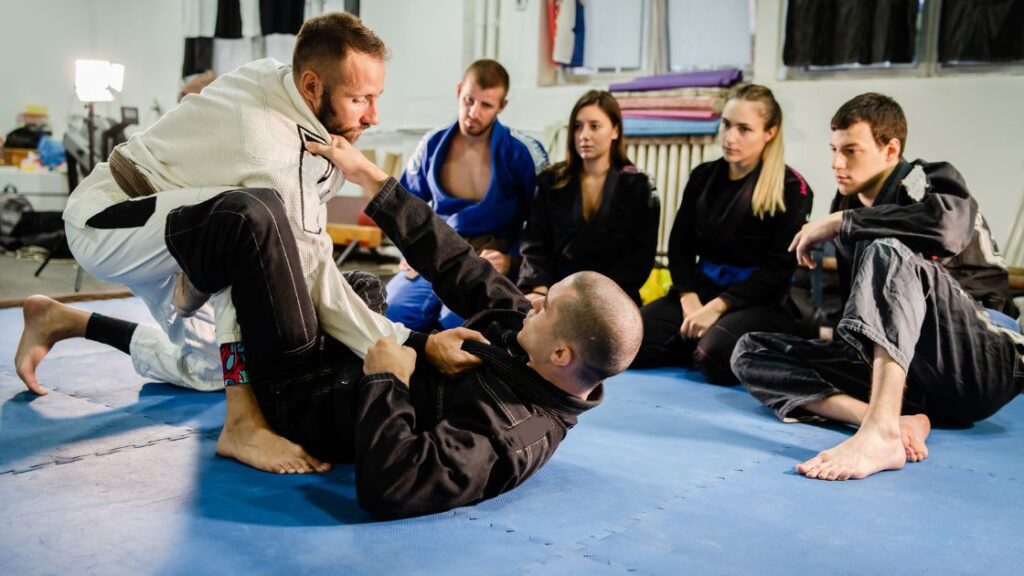
6. Compete
You don't have to compete and most people who train Jiu Jitsu, even up to black belt level, don't. But I recommend you do it at least once and preferably as early on as possible because the choice to enter a competition gets harder with every stripe on every belt.
The reservations people have about competing are possible humiliation and possible injury and while both those things will always be a possibility, they are also both unlikely.
It's quite difficult to submit a fully resisting opponent so most matches at the lower levels will go the distance and one player will win on points. You will be tired whether you win or lose but you probably won't be injured and you almost certainly won't be humiliated.
Competing will benefit you in many different ways, the least of which will be discovering holes in your game, which you can then work on.
One of my favourite benefits of entering a comp is in the lead up, when training becomes more focused and intense, more purposeful. We're all guilty of indulging in too many playful, lazy, unfocused rolls, which are always super fun and can throw up some interesting discoveries, but if you don't inject some realism into your rolls sometimes, you will develop bad habits which can lead to a false sense of security.
There's no doubt that competing can be a nerve-wracking experience but how you calm your nerves, cope with self doubt, confront your fears and approach performance anxiety, can teach you very important lessons and bring you closer to yourself.
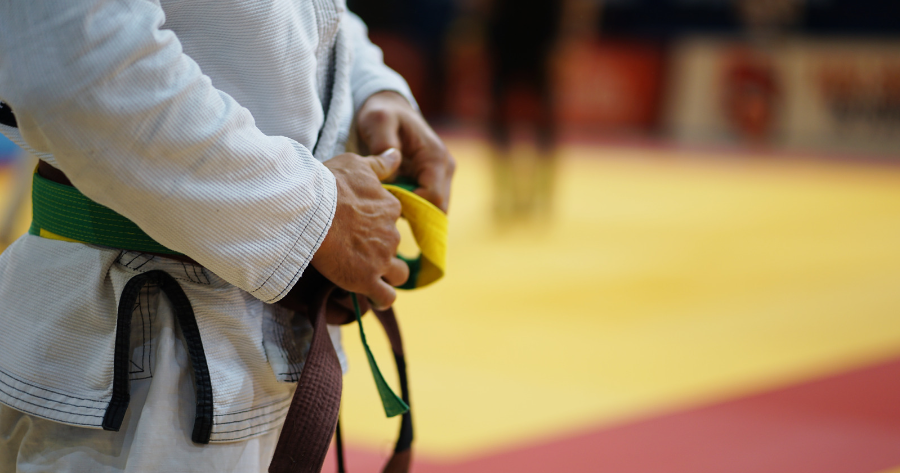
7. Be Willing To Experiment
To some extent this should only come after you have a little experience and have nailed some fundamentals. You need good defence before you can risk experimental moves and not just give up your neck, arm or foot every single time.
But once you're at the stage where things are coming more naturally and you're feeling some rhythm in your rolls, get creative. It is an art after all. If you want to reach high levels there has to be a point where you can switch off the mind chatter and let your body do the talking.
At this point you're able to focus on what your training partner is doing in response to you, or what they're doing to provoke a response in you. If they do something which benefits you then you have now learnt not to do that yourself. If they do something which disadvantages you then clock that as something you should start doing too. Being able to analyse your training partners is part of being a good learner.
8. Be A Good Uke
If being a good training partner were a scale with "sack of potatoes" at one end and "fighting for your life" at the other, we should be training in a wide section in the middle.
Starting with "minimal tension, 1-2 correct responses", moving through "increased tension, 1-2 correct responses" towards "reasonable resistance, multiple responses" and hopefully in time achieving "full resistance, random responses".
If you pay attention to being a good training partner for others then you should receive the same treatment back and thus the level in the room is raised, to everyone's benefit.
Communicate with your partner and ask what they want from you and what you want from them. Jiu Jitsu is a kind of magic but it does not teach you telepathy.
9. Film & Review Your Rolls
It is uncomfortable. I don't like doing it myself, even though I know it's so useful. It's just also very cringe. But then if you don't cringe watching yourself rolling you probably have a personality disorder so at least if you squirm while forcing yourself to watch yourself, you can be thankful you're probably quite normal.
Here's the thing. Humans are terrible at assessing themselves objectively. It's hard to do when you are inside you looking out and only seeing a small part of yourself at any given time. Sure you're feeling what you're doing, but you're multitasking a crazy complicated physical and mental puzzle when you roll, it will take several years of training consistently before you're able to take it all in and make a reasonable and logical evaluation of your movements.
You can help shortcut this by watching footage of your rolls. There are actually services now (BJJ Mental Models Premium is one) where you can have your rolling footage reviewed by a black belt who will offer objective advice. But I think the most valuable thing you can gain from simply watching it yourself is with regards to your posture, how much time you spend in offensive or defensive cycles and whether or not you are grip fighting with conviction. Another useful exercise when you end up in a bad position, is to work your way back and find out where you went wrong to let that happen.
Remember to check with your partner before you press record and be willing to share with them too. Setting your phone up on a tripod is one way to film but if you have a third person who can walk around you as you roll, you will get more detailed footage.
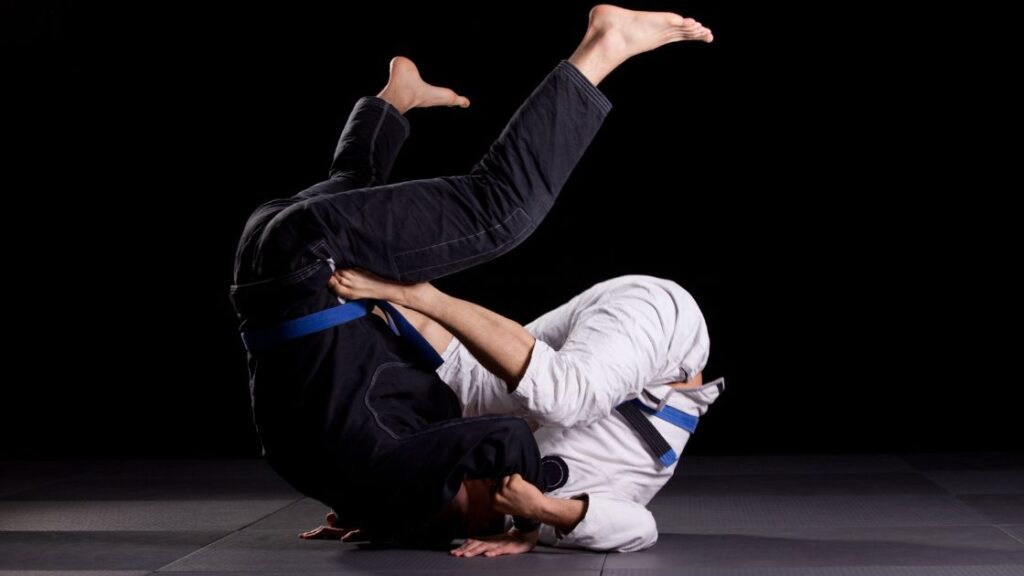
10. Train Regularly & Often
Every time you train you will get a tiny bit better, even if those training sessions are weeks apart and even if it doesn't feel like it. However, the truth is that unless you train at least three times a week, consistently, year after year, your progress will be relatively slow.
Slow progress is still progress but at some point you just have to make a decision and if you feel being good at Jiu Jitsu is something you'd like to achieve then you have to somewhat prioritise it.
If you've read this far it's because you know how fun training Jiu Jitsu is. Even when you don't know much. I think it's because tussling around with sibling and friends as kids is so natural, just as it is with so many other species, so doing it as adults speaks to a very primal childlike urge to playfight.
The better you get at playfighting, the more fun it is.
Train regularly. Train often. Have more fun.
